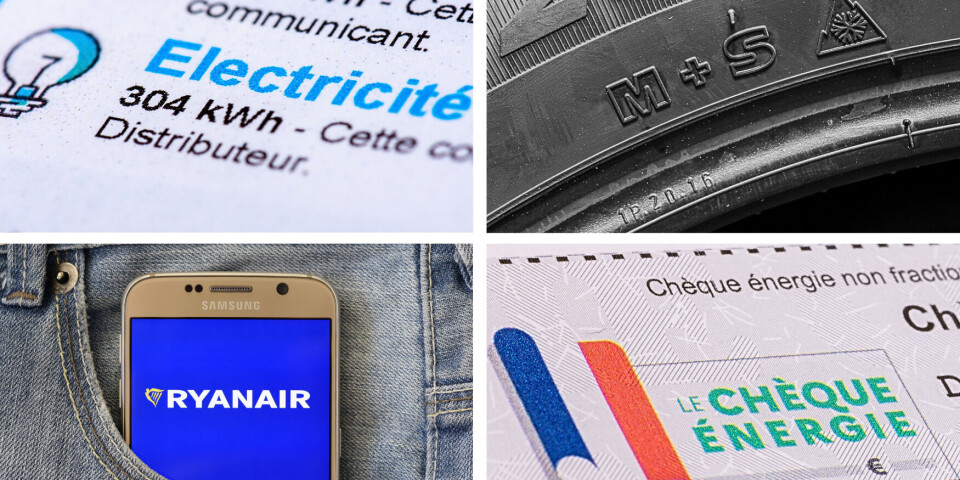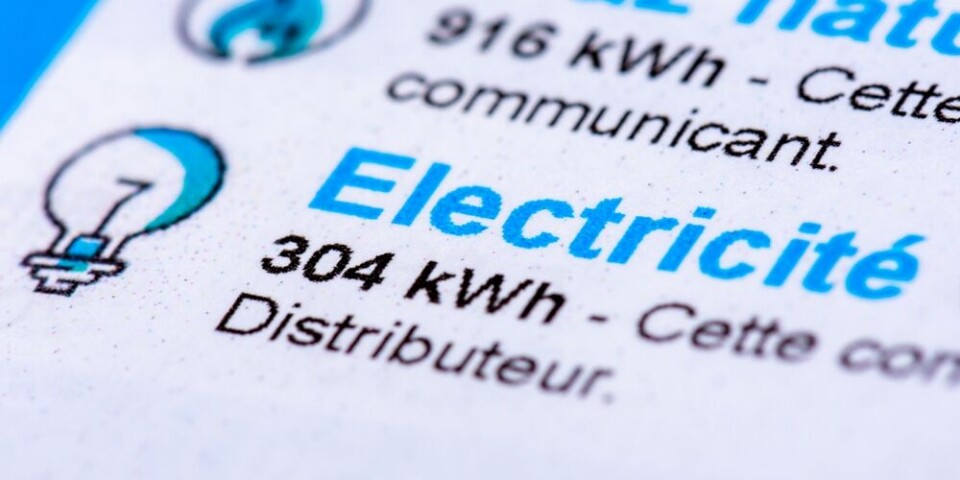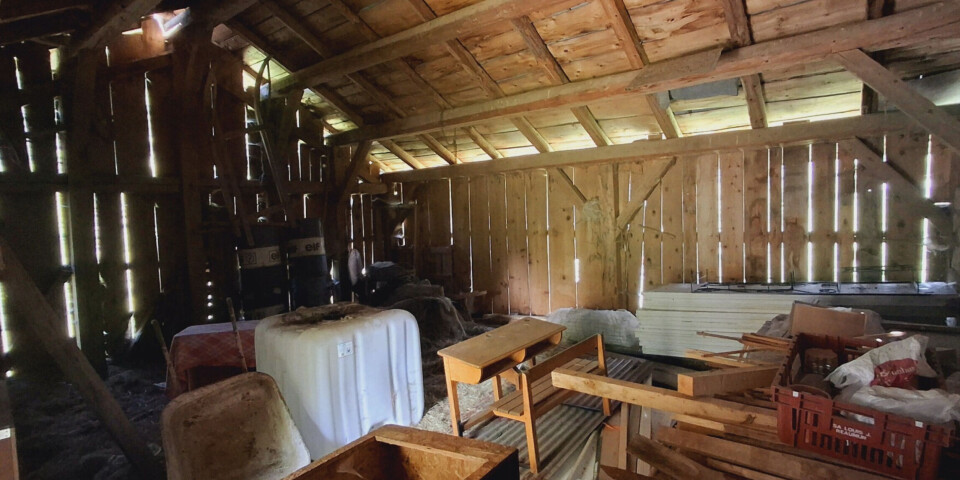-
French MPs vote through tax credit for mandatory garden undergrowth clearing
The tax credit would help with costs of annual débroussaillement in affected areas
-
Classic French recipe with an exotic twist: caramelised onion soup
A dish inspired by the travels of two Paris chefs
-
HPI final season: the end of a French TV phenomenon
Comedy-thriller starring Audrey Fleurot that gripped France airs final episodes
The French grammar conundrum behind MP’s ‘go back to Africa’ scandal
A parliamentary session was suspended over the remark but it is not exactly clear what was said. We look at why French grammar is confusing the issue

A far-right MP caused the suspension of an Assemblée nationale session last night (November 3) over a ‘go back to Africa’ remark made during a black MP’s question about migrants.
The comment has triggered a nationwide controversy and multiple calls for the Rassemblement National (RN) MP to be suspended.
As far left-wing La France Insoumise (LFI) MP Carlos-Martens Bilongo was asking a question to the Assemblée nationale about the migrant crisis and small boats in the Mediterranean, Grégoire de Fournas shouted “Qu’il(s) retourne(nt) en Afrique”.
Read more: French MP faces suspension over ‘racist’ comment in Parliament
LFI’s public relations officer Juliette Prados told The Connexion the party considered the remark to be directed personally toward Mr Bilongo, and that this was “in line with the perception of all members of the Assemblée nationale.”
If this is the case, Mr de Fournas said: “Qu’il retourne en Afrique” in the singular or “Retourne en Afrique”
However, Mr de Fournas argued that his remark was to be interpreted in its French plural form – “Qu’ils retournent en Afrique” or ‘They should go back to Africa then’ – and therefore aimed at the people arriving in Europe in small boats.
He said that he stood by this comment, considering it to be “legitimate.”
But why is it unclear what Mr de Fournas actually said?
The Connexion breaks down the three possibilities.
This article is in no way meant to minimise Mr de Fournas’ remark, but rather to explain the difference in interpretation which is made possible through French grammar rules.
‘Retourne en Afrique’
Several French people have told The Connexion it is extremely hard to distinguish whether Mr de Fournas said “Qu’il retourne en Afrique” or “Retourne en Afrique.”
‘Retourne en Afrique’ suggests the sentence is used in its imperative form and is meant as an order to leave France and ‘Go back to Africa.’ If this is what was said, the remark targets Mr Bilongo.
The French people interviewed were divided over what they heard. Six said they only hear “Retourne en Afrique” while five others hear “qu’il” or "qu'ils" at the beginning of the sentence.
“It does not come as a surprise that Mr de Fournas’ reaction comes when a Black MP speaks,” said Ms Prados, in a nod to the many accusations of racism that have been levelled at the RN in its history.
‘Qu’il retourne en Afrique’
Some French news sources have interpreted Mr de Fournas’ comment to be “Qu’il retourne en Afrique”. It is also the form that was transcribed by the Assemblée nationale’s stenographer.
If this is what Mr de Fournas said, there are two possible theories as to what he meant.
First, Mr de Fournas could have been using the singular ‘il’ to refer to the SOS Méditerranée boat carrying migrants (which Mr Bilongo mentioned in his question).
He put this suggestion to journalists waiting for him as he was leaving the Assemblée nationale, adding that understanding his remark as a direct attack toward Mr Bilongo represented a “manipulation from LFI that looks to distort my words,”
Second, the singular ‘il’ could also have been referring to Mr Bilongo himself, in which case Mr de Fournas would have been telling the LFI MP to ‘go back to Africa’.
This racist remark would suggest a lack of respect for Mr Bilongo, who – at least initially – believed that this was what was meant.
While leaving the Assemblée, Mr Bilongo said: “I am an MP of this nation and to insult me is absolutely shameful.
“I was born in France, I am a French MP and I did not think that in this day and age I would be insulted in the Assemblée nationale [...] We are seeing the true face of Rassemblement National.”
Mr de Fournas has written to Mr Bilongo, saying: “I would never have uttered, nor tolerated, a racist comment or insult made about you.”
‘Qu’ils retournent en Afrique’
Other French newspapers have interpreted Mr de Fournas’ remark as being “Qu’ils retournent en Afrique” in the plural form.
‘Ils’ refers to more than one person, in this case ‘migrants’.
This is what Mr de Fournas claims to have meant, adding that he “stands by” this comment.
Je rassure ceux qui s’inquiètent : je ne lâcherai rien !
— Grégoire de Fournas (@gdefournas) November 4, 2022
J’assume totalement mes propos sur la politique migratoire anarchique de notre pays et je continuerai à le faire face à la meute politico-médiatique.
Retrouvez-moi à 9h sur CNews ! 🇫🇷
Rassemblement National’s Marine Le Pen has also stated that Mr de Fournas was referring to “migrants transported in boats by charities”.
“The controversy provoked by our political adversaries is crude and will not trick French people,” she added.
Grégoire de Fournas a évidemment parlé des migrants transportés en bateaux par les ONG qu’évoquait notre collègue dans sa question au gouvernement. La polémique créée par nos adversaires politiques est grossière et ne trompera pas les Français.
— Marine Le Pen (@MLP_officiel) November 3, 2022
Rassemblement National press relations officer Victor Chabert also said Mr de Fournas was referring to migrants in a WhatsApp group including French journalists.
Mr Bilongo has accused Rassemblement National of “twisting [Mr de Fournas’] words to justify the unjustifiable,” asking: “Would it have been more acceptable [to be talking about] refugees [...] in a critical situation?”
Related articles
Racism still seen as a key problem in France despite rise of far-right
‘Why the ‘great replacement’ theory does not make sense in France’
























